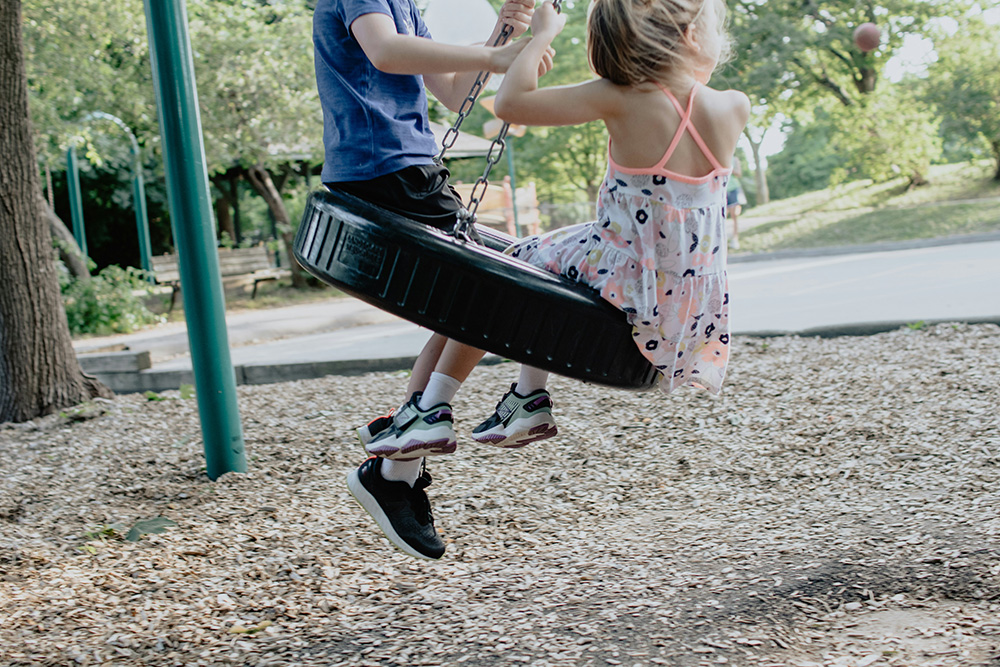
A visit to the playground offers children a chance for a fun day outside. Unfortunately, these visits sometimes end with a trip to the emergency room.
Studies have shown that more than 200,000 children in the United States go to the hospital each year with injuries sustained on the playground, such as concussions or severe lacerations. Broken bones resulting from a fall are the most common injury, and the majority of those injured are ages nine and under.
If your child was injured in a playground accident, you may be able to file a personal injury claim to receive compensation for their medical bills and other costs. These claims can be very complex, and a skilled attorney can provide helpful assistance. In this blog, we’ll explore some of the legal issues that may arise from a playground injury.
Premises liability
Playgrounds can be found at numerous different places, including schools, parks, day care centers, campgrounds, churches, and private homes. No matter who owns the playground, they have a responsibility to keep it safe. A claim against someone in control of a playground must demonstrate that the defendant failed to make sure the playground was reasonably safe to use. An injury may be caused, or worsened, by the following conditions on the premises:
Poor maintenance
The playground owner has a duty to regularly inspect it for any potential safety issues, such as broken equipment or unsafe surfaces. They also have a responsibility to repair these problems in a reasonable amount of time. If the property owner fails to take these steps, they can be held responsible.
Lack of hazard warnings
When a playground hazard is present, the playground owner must take steps to keep visitors away from it until it can be addressed. If they don’t take reasonable steps to warn others, such as putting up barriers or signs, they can be held liable for injuries resulting from the hazard.
Inadequate safety and security measures
The playground owner must take steps to ensure that the premises are safe and secure, especially if there are known issues at the site. Precautionary steps might include putting up fencing to prevent children from walking into a nearby street or installing lights if the playground can be used in the evening.
Products liability
You may also be able to file a claim against those responsible for designing, manufacturing, or constructing the playground. A products liability claim can be filed if one of the following scenarios occurred:
The playground is poorly designed or constructed
Playgrounds must be designed to endure various weather conditions and heavy use. They must also include adequate safety features and be appropriately designed for a specific age range. If there was a design flaw that made the playground inherently unsafe, it can contribute to injuries. If a defective product causes injury, a product seller may be responsible for damages.
Even if a playground is properly designed, errors or flaws in the production process can create unsafe conditions that contribute to injuries. If a manufacturer becomes aware of such a defect, they must issue a timely recall notice and provide proper notification to make the playground owner aware of any potential hazards. Manufacturers can also be held liable if they use substandard materials or other practices that compromise the safety of the playground.
Errors in the construction or installation of a playground can also contribute to injuries. These might include structural instability, loose components, and the exposure of sharp fasteners like screws and bolts.
Regulatory non-compliance
Playgrounds must comply with safety standards and regulations governing playgrounds. These standards can include federal, state, or local codes. Any parties that don’t abide by these standards can be held liable if this non-compliance is a substantial factor in causing an injury.
Failure to warn
Playground equipment usually includes labels warning visitors about certain inherent risks in using the playground. If the manufacturer fails to provide adequate information about potential safety risks, they can be held liable for an injury.
Negligent supervision
Parents have a duty of care to supervise their children at playgrounds, look out for potential hazards, and take reasonable steps to prevent injuries. This duty also extends to adults who supervise children “in loco parentis,” or in place of the parents, such as teachers and day care staff.
The playground owner can be held liable if a staffer did not properly supervise children using the playground. Negligent supervision may include not addressing a safety hazard, failing to stop dangerous behavior, or being absent or distracted when the injury occurs. It can also include the failure of the playground owner to hire qualified staff, maintain adequate staffing levels, provide proper training, or establish proper policies and procedures.
Negligent supervision can sometimes be challenging to prove, as the plaintiff must show that the defendant failed to act reasonably and did not provide an adequate standard of care. This factor can also be less applicable in claims involving older children, who are generally expected to exercise better judgment and not require close supervision.
Other considerations
Depending on the circumstances of the accident, several other issues can come into play when a child is injured on a playground. These might include:
Governmental immunity
Publicly owned playgrounds, including those at schools or parks, have greater protection from legal claims due to government immunity. This protection aims to prevent legal actions against government entities. However, there are certain exceptions to this immunity, which must be investigated to defeat a governmental immunity defense.
Trespassing
There may be clear signs indicating that a playground is not used at certain times, such as after sunset or outside of school hours. If an injury occurred outside of these hours, the defendant may argue that the plaintiff was trespassing and therefore not owed the same duty of care owed to users during normal hours. However, property owners are still responsible for keeping the property in good repair and owe a greater duty of care to children (see below).
Attractive nuisance precautions
Property owners must take precautions to prevent foreseeable harm children may suffer due to property features that may attract children. For example, the owner of a private playground has a duty of care to put up fencing or other deterrents to prevent its unsupervised use.
Shared fault
A defendant may argue that you share some of the fault for your child’s injury. For example, if a child is injured due to unsafe equipment but you were not supervising them at the time they were hurt, the defendant can argue that you were partially to blame. This can result in a reduction in the award received in a settlement or verdict.
Let’s review your case
Personal injury claims involving playground injuries can be complex. If your child has been injured in a playground accident, the attorneys at Anderson Trial Lawyers will sit down with you to discuss the circumstances of the accident and how you might proceed with a claim, and conduct the needed investigation to pursue a claim. Contact us online or call 860.886.8845 to set up a free consultation.







